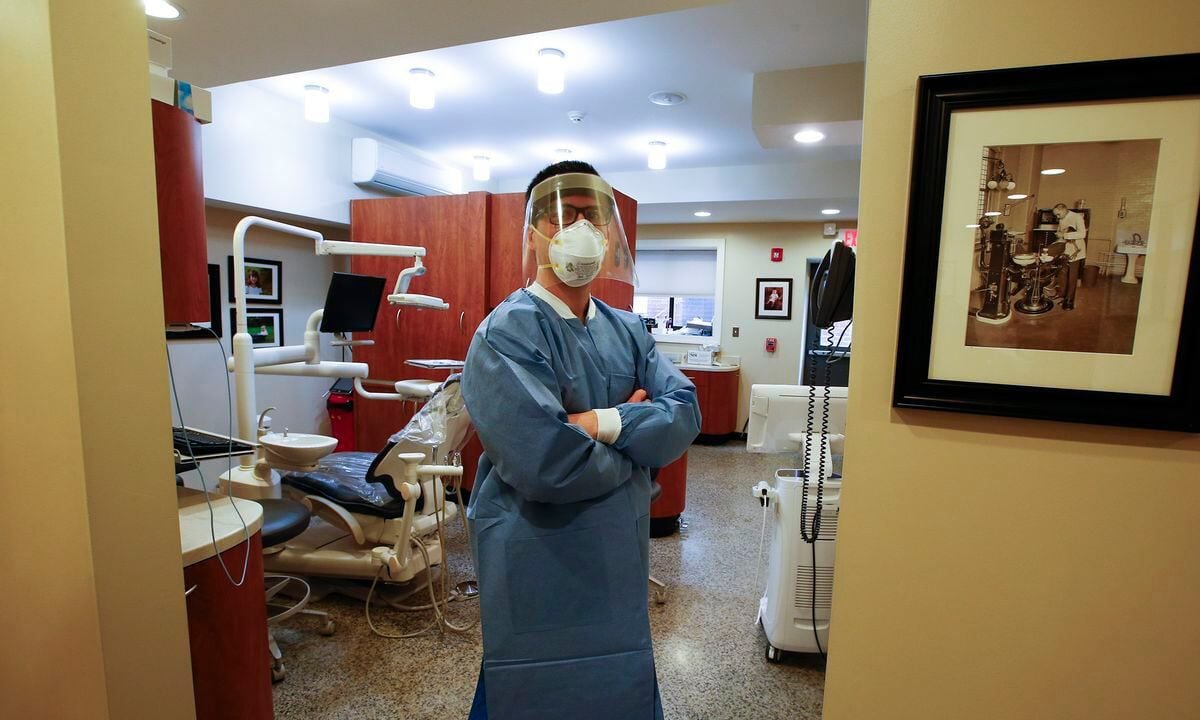
The 25-year-old freelance musician didn’t know at the time that the pandemic would keep medical offices closed for months, keeping her from getting her teeth taken care of before she lost her health — and dental — insurance.
The Pennsylvania Department of Health has said that dental practices must have sufficient personal protective equipment (PPE) for all providers and has urged dentists to avoid procedures that “create a visible spray†of saliva or blood from patients’ mouths unless necessary as part of emergency treatment.
Dental insurance plans may cover part of the cost, dentists could charge a PPE fee directly to patients or raise prices to account for the additional expense.
Dental care is a financial pressure point for families even in good times and any of these approaches will likely lead to high costs for patients, many of whom have lost jobs, income and health insurance.
To cover the cost long-term, the American Dental Association has proposed creating a new insurance billing code or adjusting existing billing codes.
America’s Health Insurance Plans (AHIP), an association that represents major insurance companies including several national dental insurers, said it expects the cost of dental care to increase.
“It’s going to be a matter of getting back to some sort of schedule gradually and kind of seeing where all the costs shake out.†Mestichelli Barnes Dental Associates, a family owned practice, received a notice that United Concordia, which offers dental benefits through Independence Blue Cross plans, would reimburse $10 for PPE, but he isn’t sure yet whether that will cover the practice’s entire cost per patient.
The cost of investing in safety precautions to get Temple’s dental clinic running again is worthwhile because many patients have few alternatives for dental care and because the clinic accounts for a significant portion of the dental school’s revenue, Ismail said.
About half of Americans covered by employer-sponsored health plans had dental benefits in 2019, according to the U.S.
Two-thirds of Medicare beneficiaries don’t have dental coverage because it is not included in original Medicare, though it is part of some Medicare Advantage plans sold by private insurers, said Melissa Burroughs, a senior oral health campaign manager at Families USA, a national consumer health care advocacy organization.
“More so than any other health care service, dental is the number one service Americans skip due to cost,†Burroughs said.
We want to see dental health care become part of overall health care,†said Helen Hawkey, executive director of the Pennsylvania Coalition for Oral Health.
But she worries that even if Medicaid plans agree to cover a portion of the cost, financially strained practices may decide they can no longer afford to accept the rates negotiated by private insurers and the even lower rates paid by Medicaid plans.
